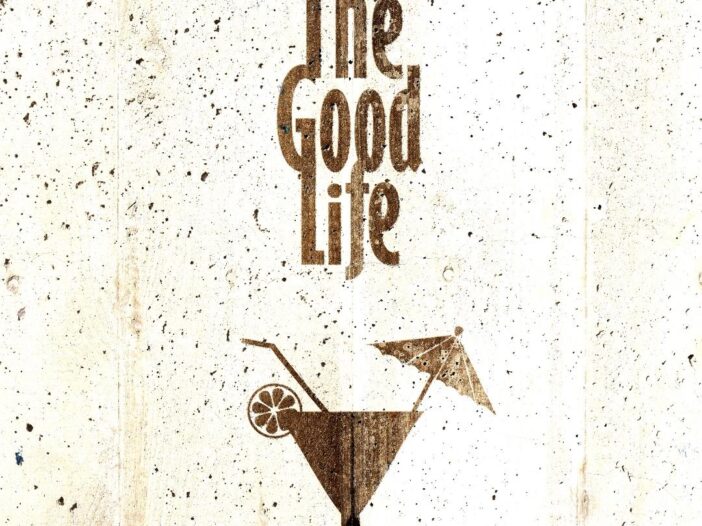
If you’re of a certain age, The Good Life is probably a TV series where Tom and Barbara Good stepped away from the rat race to try to be self-sufficient whilst living in the middle of suburbia**. It was a dream that involved a lot of mud, pigs, chickens and disbelief from their snobby neighbour Margo (played by the wonderfully poker-faced Penelope Keith.)
It’s probably not the Good Life most of us want, now or in retirement. Like most people you would probably opt for:
- A loving relationship with your partner, children and family
- Steady, well-laid job that is stimulating and enjoyable
- Your own home that’s secure and comfortable
- Hobbies and the time to enjoy them
- Active social life with good friends
- Great local community
- Voluntary work or causes you support to give something back
An ideal life
OK, the details may vary, but the list contains most of the key elements. Yet when people were asked, they felt that something was missing. A recent study by Affective Science, questioned 4,000 people from nine countries as to what kind of life they wanted. It seemed that the list lacked one crucial factor.
So what was it? And how does that affect how you might plan for and live in retirement?
The research team asked participants to write down in a few words their idea of an ideal life. Then, they were asked to rank 15 terms in order, that described their vision.
Happiness
The first group of five terms were to do with happiness:
- Stable
- Comfortable
- Simple
- Happy
- Pleasant
Within these five terms, it could be said that a human’s basic emotional and physical needs are met. It also covers the essentials of retirement planning, especially in terms of financial provision. It’s the basis to build on to create a retirement that’s personalised to you and your goals.
Meaning
The next group were used to describe how meaningful people envisioned their ideal life. They were:
- Meaningful
- Fulfilling
- Virtuous
- Sense of purpose
- Involves devotion
This group take you beyond your immediate needs and towards a more holistic viewpoint. Many studies have shown positive connections between doing good in your life with your happiness, and even longevity. It’s also shown that those with the highest levels of job satisfaction focus less on the money and more on how their work makes life better for other people.
Meaning becomes more important when we transition from work into retirement. If you did a job that you didn't necessarily like much, just for the money to support you and your family, then you might find it a struggle to fill your days when you retire. However, if you made a sense of “meaningfulness” an important part of your working life, you’re far more likely to carry this into retirement in the form of volunteer work, part-times jobs in your local community, or becoming a mentor, to continue that sense of purpose.
As you can imagine, the groups of words under the "happy" and "meaningful" were scored the highest among those who the research interviewed.
But were they missing a cornerstone element?
The third group of words
The researchers suspected they were. So, there was a third group of words that completed the picture of a good life as follows:
- Eventful
- Dramatic
- Interesting
- Full of surprise
- Psychologically rich
The reason was simple. If our lives are “picture-perfect" with little that actually challenges or surprises us, we get bored. Retirees that want to enjoy the next phase of their lives need:
- Their curiosity to be stimulated
- Challenges that needs solving by rewiring how we think
- Obstacles to overcome
- To try new things (and make mistakes!)
- Opportunities to learn and grow
Getting the balance right
Retirement is a recipe you adapt for yourself and your loved ones, containing just the right mix of happiness, meaning, and psychological richness. It’ll also shift over time, whether you are approaching retirement, or already months or years into it.
Struggling with the retirement recipe?
You are not alone! Just like Tom and Barbara’s infamous home-made wine, something you’ve worked hard on for months may not turn out to be quite what you expect.
Sometimes it’s a case of trial and error.
However, with my help, you can short-cut that trial and error process, and plan in a more systematic and holistic way. As a certified Retirement Coach, I’ll guide you through the seven key areas to consider when planning your retirement – and only one of these is your financial provision.
Moreover, it doesn’t matter how much retirement funding you have. We’ll work together to plan a retirement that works for you on all levels.
If you’d like to book 1 to 1 discussion on your retirement plans:
In the meantime, here’s the classic clip of the effect of that homemade pea-pod burgundy…
NOTES:
** It’s being repeated at the moment on the Drama tv channel.


